Le Chiantigiane Loggia del Sole 75 cl.
 D.O.C. Orvieto, Italy.
D.O.C. Orvieto, Italy.![]() Malvasía, Nebbiolo, Canaiolo, Grechetto and Trebbiano Toscano.
Malvasía, Nebbiolo, Canaiolo, Grechetto and Trebbiano Toscano.![]() White wine Bottle, 75 cl.
White wine Bottle, 75 cl.
 EUR, Final price!
EUR, Final price! 24 hours Shipping
24 hours Shipping  Spain
Spain FREE SHIPPING!
FREE SHIPPING!| Producer | Le Chiantigiane. |
| Name | Loggia del Sole. |
| Variety |
|
| Country of origin |
 Italy. Italy.
|
| Appellation of origin |
 D.O.C. Orvieto. D.O.C. Orvieto.
|
| (UE)401/2010 Certification |
Denominazione di Origine Controllata (D.O.C.) D.O.C. Orvieto. |
| Production region | The production region of D.O.C. Orvieto is located in Las provincias de Terni (Umbria) y Viterbo (Lazio), en la región de Umbria, Italia. |
| Weight | 1.500 gr. (1,5 Kg.). |
| EAN | 8016608003468 |
| Typology |
White wine. D.O.C. Orvieto. |
| Variety |
|
| Vintage / Harvest |
Currently marketed by the producer.
|
| Format | Bottle. |
| Capacity | 75 cl. |
| Alcohol content | 12% Vol. |
| Weight | 1.500 gr. (1,5 Kg.). |
| Product reference | WAN4528932 |
| EAN | 8016608003468 |
| Actual price | 6,95 € . This product is currently not available. |
| Storage position | Lateral position, horizontal bottle. |
| Storage temperature |
Store at a constant temperature between 10-17ºC. Humidity should be constant around 60-80%. |
| Recommendations | Keep preferably away from light. |
| Visual tasting note | Greenish yellow, Very bright, Very bright iridescence. |
| Olfactory tasting note | Saline notes, Jasmine, Dense. |
| Tasting note | Happy, Great persistence, Persistent flavor. |
| Recommended pairing | Smoked fish, Mixed rice, Salmorejo, Tuna tartare. |
| Consumption temperature | 4ºC - 10ºC. |
| Consumption | It is recommended to drink in moderation and demonstrate a responsible consumption of alcoholic beverages. |
| Please keep in mind |
The information provided and referred to the product features and details has been provided by the expert, manufacturer or producer or published on the official sites. In no case can it be considered as assessment made by our team, unless expressly stated otherwise. We suggest you to refer to the comments and reviews posted by our customers and users to expand and contrast this information. |
| Misreading |
Our team provides this information and details in ESPAÑOL language. If you browse in another language note that the information contained may have been translated from the original language through an automated real-time process that has not been supervised by our human team. In case of doubt, misunderstanding or misreading about the content of this information you should refer to the original version of this page or contact our customer service team. |
| Product image |
The product image or its label is only relevant for graphic purposes, so it may not match the identification of the vintage or other features and details of the product for sale. This product is provided in the conditions and format in which it is marketed at the current time. This product is not identified or supplied in a specific vintage. The product image and label may not match the vintage identification or other characteristics and details of the product for sale. |
| Legal Notice |
It is against the law to sell or supply alcohol to, or to obtain alcohol on behalf of a person under the age of 18 years. If you are not more than 18 years old, you must leave this website. |
Selection by «Message in a Bottle®»
Red Wine. Premium Edition MBS Reserva. Customizable label.
2 Reviews of customers and website users. ( During the last 90 days )
Product Selection by Le Chiantigiane.
5 Products, The best selection by Le Chiantigiane.
Le Chiantigiane Loggia del Sole 75 cl.
Additional information.

|
«Le Chiantigiane Loggia del Sole Orvieto» is produced by Le Chiantigiane. In the elaboration of «Le Chiantigiane Loggia del Sole Orvieto» the grape varieties that are used are Malvasía, Nebbiolo, Canaiolo, Grechetto and Trebbiano Toscano. «Le Chiantigiane Loggia del Sole Orvieto» is a product from Italy. It is certified with D.O.C. Orvieto. The production region of D.O.C. Orvieto is located in Las provincias de Terni (Umbria) y Viterbo (Lazio), en la región de Umbria, Italia. The weight of «Le Chiantigiane Loggia del Sole Orvieto» is 1.500 grams (1,5 Kg.). «Le Chiantigiane Loggia del Sole Orvieto» is identified and marketed with the barcode EAN 8016608003468. |
Variety:
Malvasía and Nebbiolo.
Le Chiantigiane Loggia del Sole 75 cl.
Variety Malvasía.
See Malvasía White wine list.
 Español [ ES ]
Español [ ES ]Origen.
El término malvasía designa a una familia de variedades originarias del Mediterráneo, probablemente de Grecia, y la isla de Madeira, que en la actualidad se cultivan en todas las zonas vitivinícolas del mundo. En España la introducen los almogávares en el siglo XIV, muchos de los cuales, a la vuelta de la expedición de Bizancio, se asentaron en las huertas de Valencia y también en las de Alicante, donde plantaron cepas de esa variedad que trajeron consigo, donde se elaboraron grandes vinos valencianos entre los siglos XV y XVI. Ramón Muntaner, uno de los generales, regresa a valencia en 1307 para casarse con Xirivella, dueña de una alquería donde plantó la uva malvasía. Desde allí se exportó a las Islas de Madeira y también a Canarias entre los siglo XV y XVI.
Características.
Aunque generalmente se habla de malvasía para referirse a la variedad blanca, también existe una malvasía tinta con el nombre de malvasía negra. Las diversas variedades se diferencian notablemente entre ellas por la morfología de la planta, color, sabor y composición bioquímica del fruto, precocidad de maduración, productividad y aptitud para la vinificación. Las vides malvasía pueden ser de dos grupos: los que tienen un ligero aroma que recuerda al moscatel y otros de sabor simple. Son cepas poco productivas y de escasa fertilidad, vigorosas, con porte tumbado o semierecto, de desborre muy temprano y con envero y maduración precoces. Sus racimos son medianos y poco compactos pero uniformes, alargados, con forma piramidal, muy alados, de compacidad media a elevada. Con pedúnculo muy corto y verde. Las uvas son de tamaño medio a pequeño, de sección esférica, perfil muy ligeramente elíptico, de hollejo muy fino de color verde con tendencia a tonos amarillo-dorados, con mucha pruina. Ombligo muy marcado. Su pulpa está apenas pigmentada, blanda, muy jugosa, con sabor muy dulce y aromática. Son cepas que resisten bien al frío del invierno pero no así a las heladas primaverales. Se adaptan muy bien al encharcamiento del suelo y al exceso de humedad, sin embargo, no resisten bien las sequías. Precisa de climas suaves y suelos filtrantes. Son cepas muy sensibles al mildiu y a la botritis, así como a los ácaros y a la polilla del racimo. La podredumbre ácida y los cicadélidos afectan bastante a estas cepas, y moderadamente el desecado del raspón y un más al oídio.
Zonas de cultivo.
Es una variedad internacional pues podemos encontrarla en Portugal como protagonista en la elaboración del Vino madeira, en Francia, Croacia, Eslovenia incluso en Brasil, pero es Italia (Lombardía, Sicilia, Lipari, y también Cerdeña) el principal país productor de esta variedad. En España también existe una amplia extensión. Son las comunidades autónomas de Castilla y León y Comunidad Valenciana las claras representantes, aunque en Aragón, Baleares, Castilla-La Mancha, Cantabria, Rioja y Murcia también apuestan por ella. Siempre se ha cultivado en abundancia en casi todas las islas del mediterráneo.
Vinos.
Con esta uva se elaboran desde los vinos monovarietales más jóvenes, hasta crianza o reserva, que normalmente se elaboran con distintas variedades. Los vinos jóvenes elaborados con estas uvas presentan tonos amarillos verdosos en cambio los crianza se acercan más a las tonalidades doradas. Tiene un alto contenido en azúcar lo que la hace perfecta para elaborar vinos dulces, de este modo los vinos elaborados malvasía aguantan bien el envejecimiento. La mayoría de los vinos procede de una varietal denominada malvasía bianca. Se producen vinos de mesa blancos o de color tostado, y más raramente tintos. Con fuertes aromas. También vino de postre y vino generoso.
White wine Malvasía
Product Selection White wine Malvasía.
Le Chiantigiane Loggia del Sole 75 cl.
Variety Nebbiolo.
See Nebbiolo White wine list.
 Español [ ES ]
Español [ ES ]Origen.
Hay varias teorías sobre el origen del nombre de esta uva, una sería la palabra nebbia, que significa “niebla”, y hace referencia a la que se postra sobre las colinas de la región del Langhe, en el noroeste de Italia, durante el tiempo de la cosecha. Otra posibilidad sería por el velo lechoso, similar a la niebla, que crece sobre la piel de las uvas cuando alcanzan la madurez y, por último, es posible que derive de la palabra italiana nobile, que significa noble, por la nobleza de esta uva. Desde el punto de vista ampelográfico, el origen de la uva nebbiolo se sitúa en la región italiana de Piamonte, aunque otros autores la ubican en Lombardía. En el siglo I A.C., Plinio el Viejo describió la calidad excepcional del vino producido en Pollenzo, una región localizada al noroeste de lo que ahora es la zona DOCG de Barolo. Aunque Plinio no menciona explícitamente el nombre de la uva de la que se hacía el vino de Pollenzo, la descripción del vino guarda similitudes con las descripciones posteriores de los vinos basados en nebbiolo. La primera mención explícita a la nebbiolo data de 1268 donde se dice que la "nibiol" crecía en Rívoli, cerca de Turín. Posteriormente, en 1303, un productor del distrito de Roero dice tener un barril de "nebiolo”. En el tratado de 1304 titulado Liber Ruralium Commodorum, el jurista italiano Pietro Crescenzi describe el vino hecho de "nubiola" como de excelente calidad. Hay estatutos del siglo XV de la región de La Morra que demuestran la alta estima que se tenía a la nebbiolo, donde se imponían penas, que podían llegar a la amputación de la mano, por cortar viñas de nebbiolo. En el siglo XVIII hay noticias, por primera vez, de uva nebbiolo fuera del Piamonte, cuando los británicos, al no poder disponer de vino de Burdeos debido al conflicto que tenían con los franceses, recurrieron a vinos de esta variedad, aunque las dificultades que encontraban para llevar el vino desde Piamonte a Londres, hicieron que se decantaran por vinos de Oporto y de Jerez. La cantidad de viñedos de nebbiolo continuaron en crecimiento durante el siglo XIX, hasta que la filoxera los diezmó. Después de esto, muchos viticultores decidieron replantar sus terrenos con otras variedades de uva, lo que supuso que la extensión de nebbiolo se redujera, dando como consecuencia que, hoy en día, los viñedos de nebbiolo en Piamonte no alcanzan el 6%.
Características.
Esta cepa es muy caprichosa, por decirlo de alguna forma. Tiende a madurar muy tarde, cuando el clima en la región empieza a ponerse difícil. Es muy susceptible a las plagas y podredumbre. En la bodega es delicada, muy propensa a la oxidación, la cual cambia su color, y puede perder sus aromas frutales. Se debe tener mucho cuidado en su manejo desde el viñedo hasta que llega a la botella, pero cuando todos estos factores convergen en una perfecta armonía, el resultado final puede ser excepcional.
Zonas de cultivo.
La uva nebbiolo no es tan viajera como la merlot o la chardonnay; es decir, no la encontramos por todo el mundo. Fuera de su natal Italia, sólo en alguna parte de California, como por ejemplo en Napa Valley, y en el Valle de Guadalupe, en México, podemos probar cierta cantidad de vinos hechos con esta uva.
Vinos.
Esta variedad es autóctona es utilizada para crear dos excelentes vinos principalmente: el Barolo y el Barbaresco. Ambos son tipos de vinos y denominaciones de origen al mismo tiempo, los cuales pueden ser considerados como los mejores vinos de toda Italia. Los vinos elaborados con la variedad nebbiolo pueden requerir años de envejecimiento para equilibrar el nivel de taninos con otras características. Así, la nebbiolo produce vinos tintos de color claro que pueden contar con mucha cantidad de taninos en su juventud. A medida que el vino envejece, desarrolla matices a piel de naranja en el borde de la copa y madura para revelar otros aromas y sabores, como a violetas, alquitrán, hierbas salvajes, cerezas, grosellas, trufas, tabaco y ciruelas pasas.
White wine Nebbiolo
Product Selection White wine Nebbiolo.
Le Chiantigiane Loggia del Sole 75 cl.

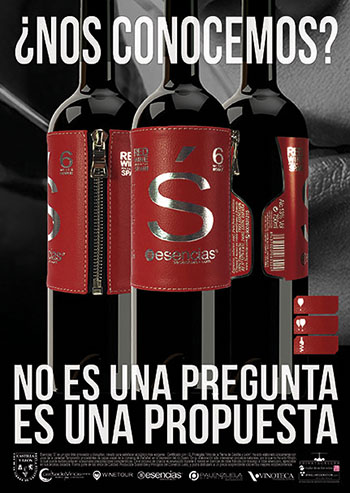
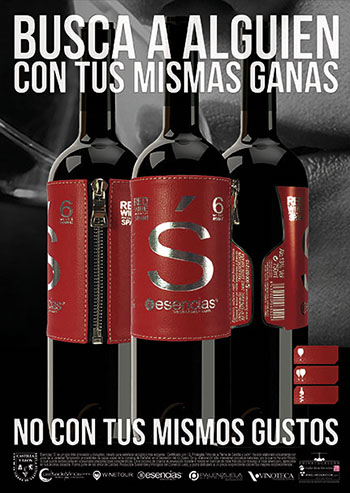
Data sheet.
Le Chiantigiane Loggia del Sole 75 cl.
White wine. Le Chiantigiane. Loggia del Sole. D.O.C. Orvieto. Italy. Malvasía, Nebbiolo, Canaiolo, Grechetto, Trebbiano Toscano. Bottle. 75 cl..
| Variety | |
| Country of origin |  Italy. Italy. |
| Appellation of origin |  D.O.C. Orvieto. D.O.C. Orvieto. |
| Vintage / Harvest | Currently marketed by the producer. |
| Format | Bottle. |
| Capacity | 75 cl. |
| Alcohol content | 12% Vol. |
| Visual tasting note | Greenish yellow, Very bright, Very bright iridescence. |
| Olfactory tasting note | Saline notes, Jasmine, Dense. |
| Tasting note | Happy, Great persistence, Persistent flavor. |
| Recommended pairing | Smoked fish, Mixed rice, Salmorejo, Tuna tartare. |
| Consumption temperature | 4ºC - 10ºC. |
| Typology | White wine. D.O.C. Orvieto. |
| Producer | Le Chiantigiane. |
| Name | Loggia del Sole. |
| Weight | 1.500 gr. (1,5 Kg.). |
| EAN | 8016608003468 |
| Comments | 2 Customer reviews. |
| Customers rating | |
| Product reference | WAN4528932 |
| Actual price | 6,95 € . This product is currently not available. |
| Please keep in mind | The information provided and referred to the product features and details has been provided by the expert, manufacturer or producer or published on the official sites. In no case can it be considered as assessment made by our team, unless expressly stated otherwise. We suggest you to refer to the comments and reviews posted by our customers and users to expand and contrast this information. |
| Misreading | Our team provides this information and details in ESPAÑOL language. If you browse in another language note that the information contained may have been translated from the original language through an automated real-time process that has not been supervised by our human team. In case of doubt, misunderstanding or misreading about the content of this information you should refer to the original version of this page or contact our customer service team. |
| Product image | The product image or its label is only relevant for graphic purposes, so it may not match the identification of the vintage or other features and details of the product for sale. This product is provided in the conditions and format in which it is marketed at the current time. This product is not identified or supplied in a specific vintage. The product image and label may not match the vintage identification or other characteristics and details of the product for sale. |
| Country of origin | Spain. This product is shipped from Spain. |
| (UE)401/2010 Certification | Denominazione di Origine Controllata (D.O.C.) D.O.C. Orvieto. |
| Production region | The production region of D.O.C. Orvieto is located in Las provincias de Terni (Umbria) y Viterbo (Lazio), en la región de Umbria, Italia. |
| Storage position | Lateral position, horizontal bottle. |
| Storage temperature | Store at a constant temperature between 10-17ºC. Humidity should be constant around 60-80%. |
| Recommendations | Keep preferably away from light. |
| Accessories | This product is provided in the conditions and format in which it is marketed at the current time. In cases where the product includes an additional packaging, box and/or case, These accessories will be included in the shipment as long as they comply with the dimensions of the special packaging adapted and approved for the transport of beverages. In general, the images of the products that we publish on our website are only relevant for graphic purposes. The images do not show other accessories such as additional packaging (box, case, etc.) or promotional elements that may occasionally be included by the manufacturer along with the product. If you wish, we can inform you about the additional packaging, elements and accessories included with the product at the current time. |
| Legal Notice | It is against the law to sell or supply alcohol to, or to obtain alcohol on behalf of a person under the age of 18 years. If you are not more than 18 years old, you must leave this website. |
| Consumption | It is recommended to drink in moderation and demonstrate a responsible consumption of alcoholic beverages. |
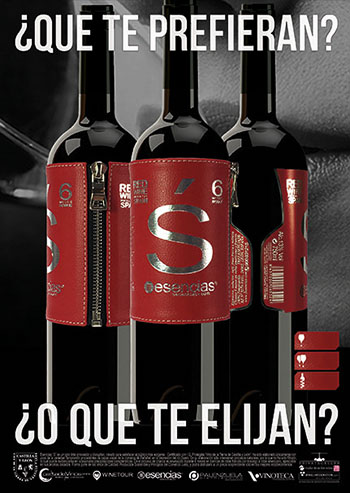
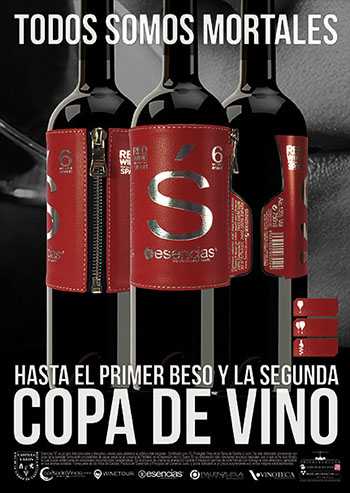
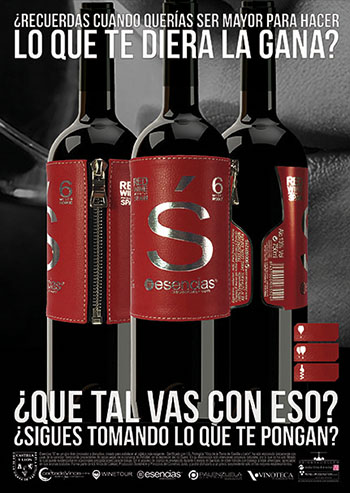
 France
France Argentina
Argentina United States
United States Australia
Australia Portugal
Portugal Chile
Chile New Zealand
New Zealand South Africa
South Africa



 Germany
Germany Austria
Austria



 Tokaj-Hegyalja
Tokaj-Hegyalja





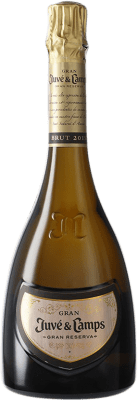
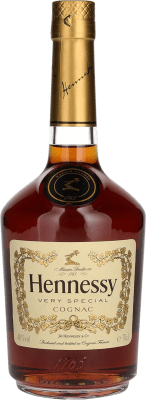


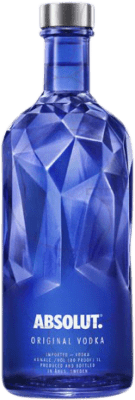






















 Language English
Language English






































Sabor muy conseguido. De lo mejor
Muy rico en aromas.
Estaba espontáneamente entusiasmado con este Vino Blanco. Estoy impresionado por la riqueza de los aromas de la Malvasía. Espero siempre la siguiente oportunidad de abrir una botella.